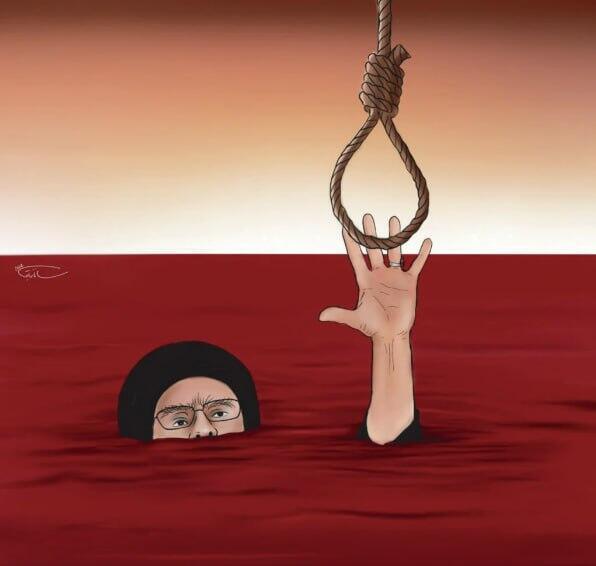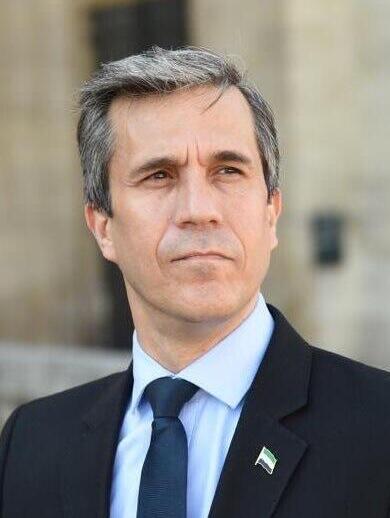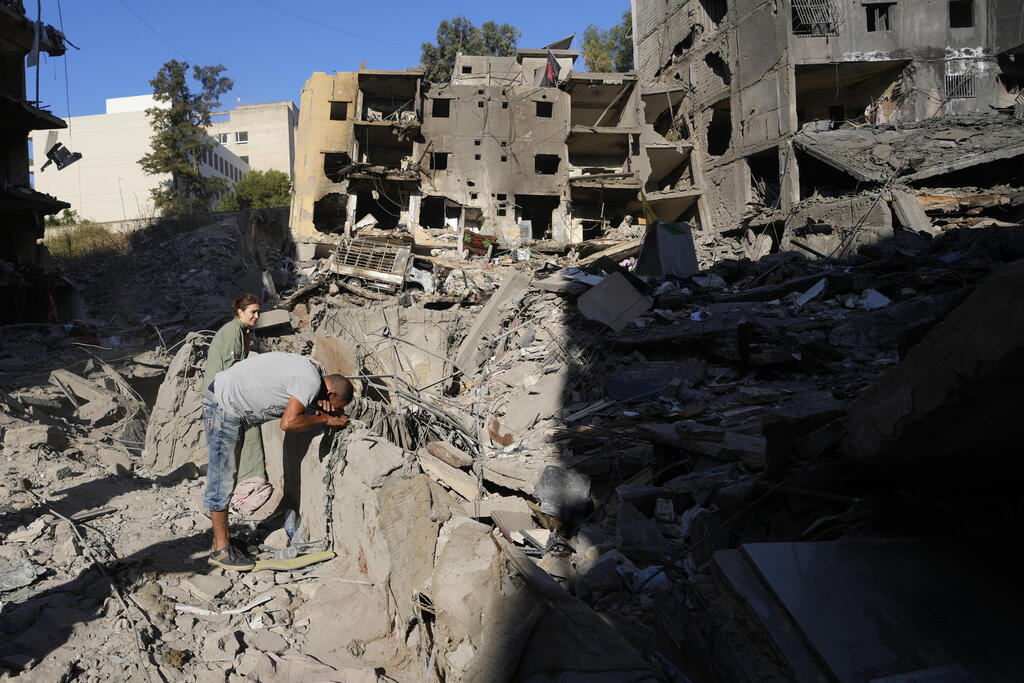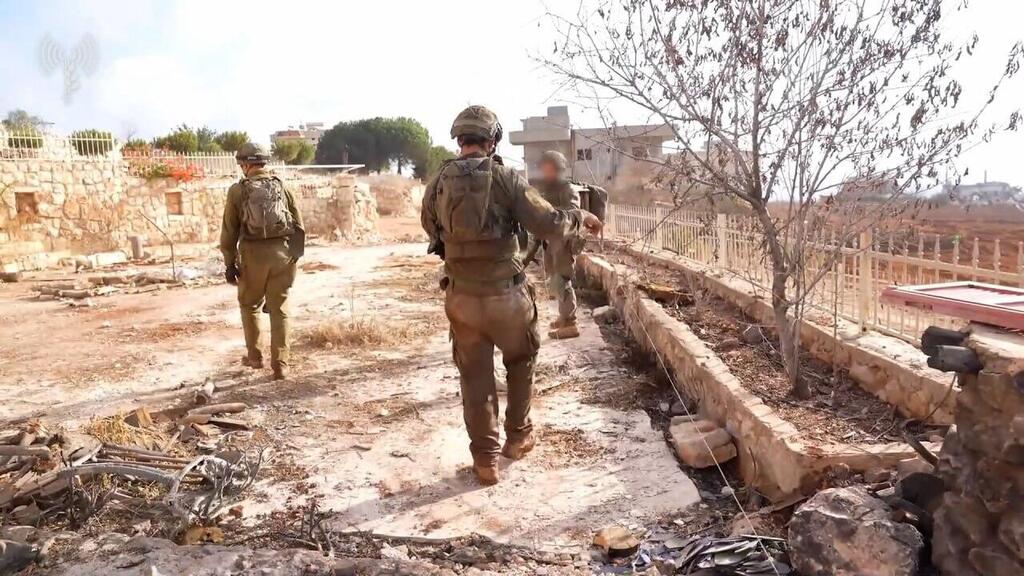For the first time in history, the Israeli people and others in the region share an unprecedented sense of happiness and excitement. Tens of thousands of Syrians and Lebanese are united—not to condemn Israel—but to express their joy in the streets and public squares.
They hand out sweets, dance and chant with excitement because Israel has struck the heart of the Iranian project by neutralizing key terrorist leaders in Lebanon and Syria. Israel has killed those leaders in their hideouts.
3 View gallery


A cartoon of Iran's Supreme Leader Ayatollah Ali Khamenei published by the French newspaper Charlie Hebdo
Nobody can deny that with every Israeli strike against Iran’s militias and its proxies in Syria over the last few years, most Syrians have been cheerful. Syrians are never afraid of these strikes as they are confident that these strikes never target civilians.
Today, Israel has undoubtedly become the closest ally to the Syrian and Lebanese peoples, and all peoples in the region. This is a golden and historical chance for building bridges for trust, peace and regional cooperation. This marks a rebirth of the Middle East. Israeli leaders should deeply think about this change of public mood. They need to think about the meaning of this when Syrians raise slogans of gratitude to Israel and its government for the quality operations targeting leaders of Iranian terrorism.
Millions of people in Syria and Lebanon consider what has happened as divine justice that has started to find its way through the accelerating and unexpected end of the axis of evil and the collapse of false slogans and illusions in one shot.
Hassan Nasrallah was killed not once, but three times. Two times by his own hands and once by the hands of the Israelis. The first time was when he and his fighters sided with Syrian President Bashar al-Assad and fought against the Syrian people, killing and displacing them, destroying their towns and villages.
The second time was when he completely relied on Iran, placing his losing bets on Tehran. The third and last time was when Israel killed him in a devastating military operation.
The assassination of Nasrallah and his top aides is not just a passing event, but rather a major strategic blow to the core of the Iranian project. This operation was the result of a brave, wise and rational decision. It constitutes not only the elimination of a gang of terrorists, but also the termination of Iran's whole regional project.
Before being destroyed militarily, Hezbollah had already morally collapsed as an idea and as a project, particularly because of its intervention in Syria. It has changed from a Lebanese local force into a strong Iranian arm, serving Tehran's regional ambitions.
Most people in Syria and the Arab world have always thought that Israel, Iran and its proxies—especially Hezbollah—are working in harmony to exchange services. They think that the United States and Israel have been using Iran and its proxies to blackmail the Arabs and Muslims. Most Syrian people think that Israel has been protecting Assad and his regime from collapsing. However, all these misconceptions have now faded away and things have drastically changed.
The high cost of war for Israel is the result of its strategic hesitation in confronting Iran and its proxies. This reluctance was the outcome of successive Israeli governments and the U.S. administration, particularly during Obama's presidency.
Through its quality operations, Israel has proved the high professionality and efficiency of its military and intelligence institutions. The "pager operation" is not a mere military operation, rather it is a security and military masterpiece with the utmost intelligence and accuracy.
Thousands of Hezbollah pagers exploded simultaneously, leaving dozens of terrorist dead and thousands maimed
It should be featured in the Guinness Book of World Records as the first military operation in history that could kill thousands of murderers and terrorists in one blow without firing a single bullet. It is a collective castration process of thousands of criminals. This operation will for sure be taught in military academies and intelligence schools worldwide.
The "pager operation" and the assassination of Nasrallah and his top aides in their hideouts will be a strong sign of Israel's good intentions. We will consider these Israeli operations as a gesture of friendship by the Israeli leadership to the Syrian people and the first step toward rapprochement with the Syrian people and the rest of the peoples of the region.
Today, following these devastating strikes against the backbone of the Iranian project, there is a real possibility of security upheaval in Syria as there are more than 63 pro-Iran militias in present there.
Most of these militias are concentrated in southern Syria near the Golan Heights, in Dara’a, Damascus suburbs, Homs, Hama and Deir ez-Zor, along with a number of Palestinian militias fighting alongside Assad. Civil war in Lebanon has also become increasingly likely.
To address these challenges, two courses of action are necessary:
First, establish a Regional Security Council. I first proposed this idea eight years ago, and now it is more crucial than ever for solving protracted political issues, including the Palestinian conflict. Saudi Arabia, under the courageous leadership of Crown Prince Mohammed bin Salman, is well-suited to host this council due to its influence in the Arab and Islamic worlds. The United Arab Emirates, with its positive relations with Israel, could also play a key role in supporting this initiative. Additionally, the creation of an "Arab-Regional NATO" could help bring peace and stability to Syria, Gaza and Lebanon. The deployment of multinational peacekeeping forces will soon be inevitable.
Second, take strategic actions for Lebanon and Syria.
- Place Beirut’s airport and seaport under NATO supervision, in cooperation with the Lebanese Army.
- Extend Israel's ground operations in southern Lebanon to secure a buffer zone south of the Litani River and dismantle weapons stockpiles. This will help ensure the safe return of Israeli citizens to their homes in northern Israel.
- Launch targeted strikes against Iranian and Palestinian militias in southern Syria up to the suburbs of Damascus as a first step, followed by operations along the Syrian-Iraqi border, Homs, Hama, Qalamoun and coastal areas to dismantle arms caches.
- Deploy an international inspection team to Lebanon, backed by military forces, to control and confiscate Hezbollah’s weapons.
- Deploy NATO forces along the Lebanon-Syria border to secure it, in cooperation with the Lebanese Army.
- Destroy the tunnel networks along the Syria-Lebanon border, many of which were built during the Syrian war.
There are many tunnels connecting Hezbollah’s weapons depots in Qusayr, Syria, to its positions in Lebanon, some of which were built as early as 2013. Upon reviweing the photos and videos published by the IDF, it is evident that weapons found in southern Lebanon’s tunnels were transferred from the Qalamoun and Maheen Syrian military depots near Homs with Assad’s approval.
The international community must support Israel in dismantling Hezbollah’s military infrastructure and confiscate its weapons. Any delay will force Israel to extend its military operations further into Lebanon, potentially up to Beirut, Bekaa and the mountains.
The Iranian Revolutionary Guard has transformed the Sayyidah Zaynab area southeast of Damascus into an Iranian stronghold, similar to the southern suburbs of Beirut. This area is now home to terrorist militias from Afghanistan, Iraq, Pakistan and the Houthis, as well as the Polisario gangs supported by Algeria and Iran. There are command centers, training facilities, weapons depots and tunnels that must be tackled in the same manner as Israel’s operations in Beirut's southern suburbs.
 Fahad Almasri Photo: Courtesy
Fahad Almasri Photo: CourtesyThe Iranian project in the region rests on three main pillars: Hezbollah, Assad’s regime and Tehran's nuclear and missile programs. With Hezbollah’s collapse and Assad’s impending fall, the nuclear program remains the final pillar, and I think Israel will not hesitate to deal with it. The Middle East cannot achieve stability until the Iranian project is fully dismantled. I doubt that Khamenei will survive much longer. He will go down as the last of Iran’s supreme leaders.
In Syria, with the fall of Assad, a new national leadership—supported by a military council of non-Iran-affiliated officers who have not committed war crimes—can bring stability. Russia’s military presence in Syria can play a constructive role in this transitional period.
Israel is currently fighting a war on behalf of the entire region and the Islamic world. This battle could be named the "mother of all battles" and should be the last of its kind in the region. It marks the new birth of the Middle East, paving the way for peace and regional cooperation.
I look forward to the day I can take a train from Damascus to Haifa, enjoy lunch by the sea and visit my friends in Tel Aviv and Jerusalem.
- Fahad Almasri is president of the National Salvation Front in Syria.
Get the Ynetnews app on your smartphone:






